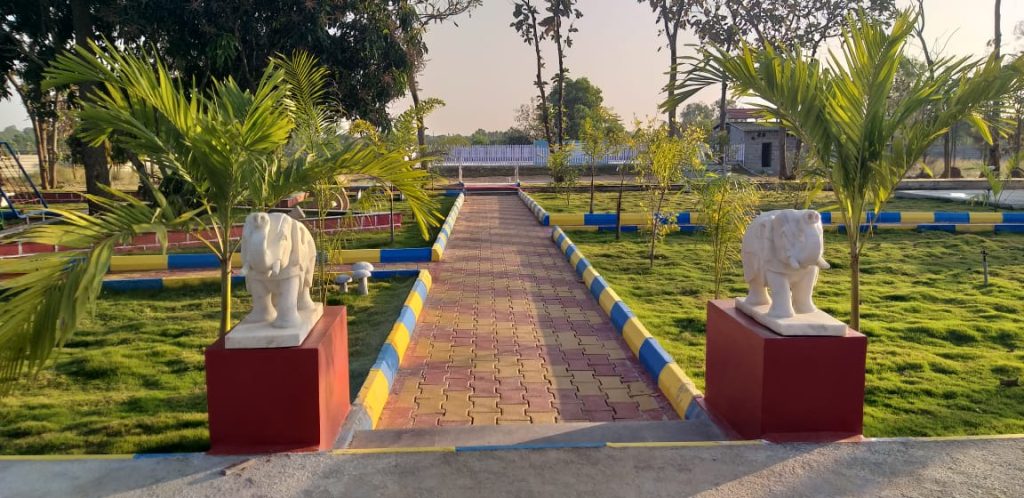
In the rapidly evolving realm of agriculture, technology is proving to be a game-changer for farmers and land managers. The integration of cutting-edge technologies has ushered in a new era of efficiency, sustainability, and precision in managing farmland. By adopting cutting-edge transformative technologies, managed farmland can evolve into highly efficient, data-driven enterprises. Sharanya Farm is a managed farmland near Bangalore that incorporates a range of technologies to provide multiple benefits. In this blog we’ll explore the transformative tech trends that are reshaping managed farmland, exploring how these innovations are optimising processes, boosting yields, and contributing to a more sustainable agricultural future.
The Rise of Precision Agriculture
Precision agriculture has emerged as a cornerstone of modern farming practices, leveraging technology to optimise field-level management with regard to crop farming. GPS technology, sensors, and data analytics play a pivotal role in this paradigm shift. Farmers now have access to real-time data that allows for precise decision-making, leading to improved resource allocation and minimising environmental impact.
From planting and monitoring to harvesting and data-driven decision-making, precision agriculture is revolutionising modern farming practices. The continued integration of advanced technologies holds the promise of increased sustainability, efficiency, and resilience for managed farmland worldwide.
GPS-guided Tractors and Planters
One of the standout technologies in precision agriculture is the use of GPS-guided tractors and planters. These systems enable farmers to create highly accurate field maps, facilitating the precise placement of seeds and the optimal spacing between rows. The result is not only increased efficiency but also reduced input costs as resources are used more effectively.
Internet of Things (IoT) in Agriculture
The Internet of Things (IoT) has made significant inroads into agriculture, providing farmers with a network of interconnected devices that gather and share data. On managed farmland, IoT devices include soil sensors, weather stations, and even drones. These devices continuously collect data, offering insights into soil health, moisture levels, and crop conditions.
Soil Health Monitoring
Soil health is paramount for successful agriculture, and IoT-driven soil sensors provide real-time information about nutrient levels, pH, and moisture content. Armed with this data, farmers can implement targeted interventions, such as precise irrigation and fertilisation, leading to healthier soils and better crop yields.
Drones for Precision Crop Monitoring
Unmanned aerial vehicles, or drones, have revolutionised crop monitoring on managed farmland. Equipped with high-resolution cameras and, in some cases, multispectral sensors, drones provide farmers with detailed aerial imagery of their fields. This imagery aids in the early detection of crop diseases, nutrient deficiencies, and other issues that may impact yield.
Crop Health Assessment
Drones enable farmers to assess the health of their crops from above, identifying areas of stress or potential problems that might not be immediately visible at ground level. This early detection allows for targeted interventions, minimising the need for widespread pesticide or fertiliser applications and reducing environmental impact.
Artificial Intelligence (AI) in Farming
Artificial Intelligence has found its way into agriculture, offering farmers advanced analytics and decision-making capabilities. Machine learning algorithms process vast amounts of data to provide actionable insights, optimising various aspects of farm management.
Predictive Analytics for Crop Yield
By analysing weather patterns, and soil conditions, and historical data, AI algorithms can predict crop yields with remarkable accuracy. This enables farmers to make informed decisions regarding planting schedules, resource allocation, and market positioning, ultimately maximising profitability.
Blockchain for Transparent Supply Chains
Blockchain technology is increasingly being adopted in agriculture to create transparent and traceable supply chains. This is particularly important for managed farmland as consumers are becoming more conscious of the origin and sustainability of the products they purchase.
Transparent Food Supply Chains
Blockchain allows for the creation of immutable, transparent records of each step in the agricultural supply chain. From planting to harvesting and processing and distribution, every stage is recorded on the blockchain. This transparency not only builds consumer trust but also aids in the rapid identification and containment of any issues, such as contamination or fraud.
Summary
As we look ahead, the integration of these technologies holds tremendous promise for the future of managed farmland. The combination of precision agriculture, IoT, AI, drones, and blockchain creates a powerful toolkit for farmers to enhance productivity, reduce environmental impact, and ensure the sustainability of their operations. If you are in search of the best managed farmland near me, then look no further than Sharanya Farm, where experts are armed with real-time insights and precise control over their operations, and are well-positioned to navigate the challenges of a changing climate, fluctuating markets, and the growing demand for sustainable agriculture. As technology advances, the marriage of innovation and agriculture will undoubtedly shape a more resilient and prosperous future for managed farmland worldwide.